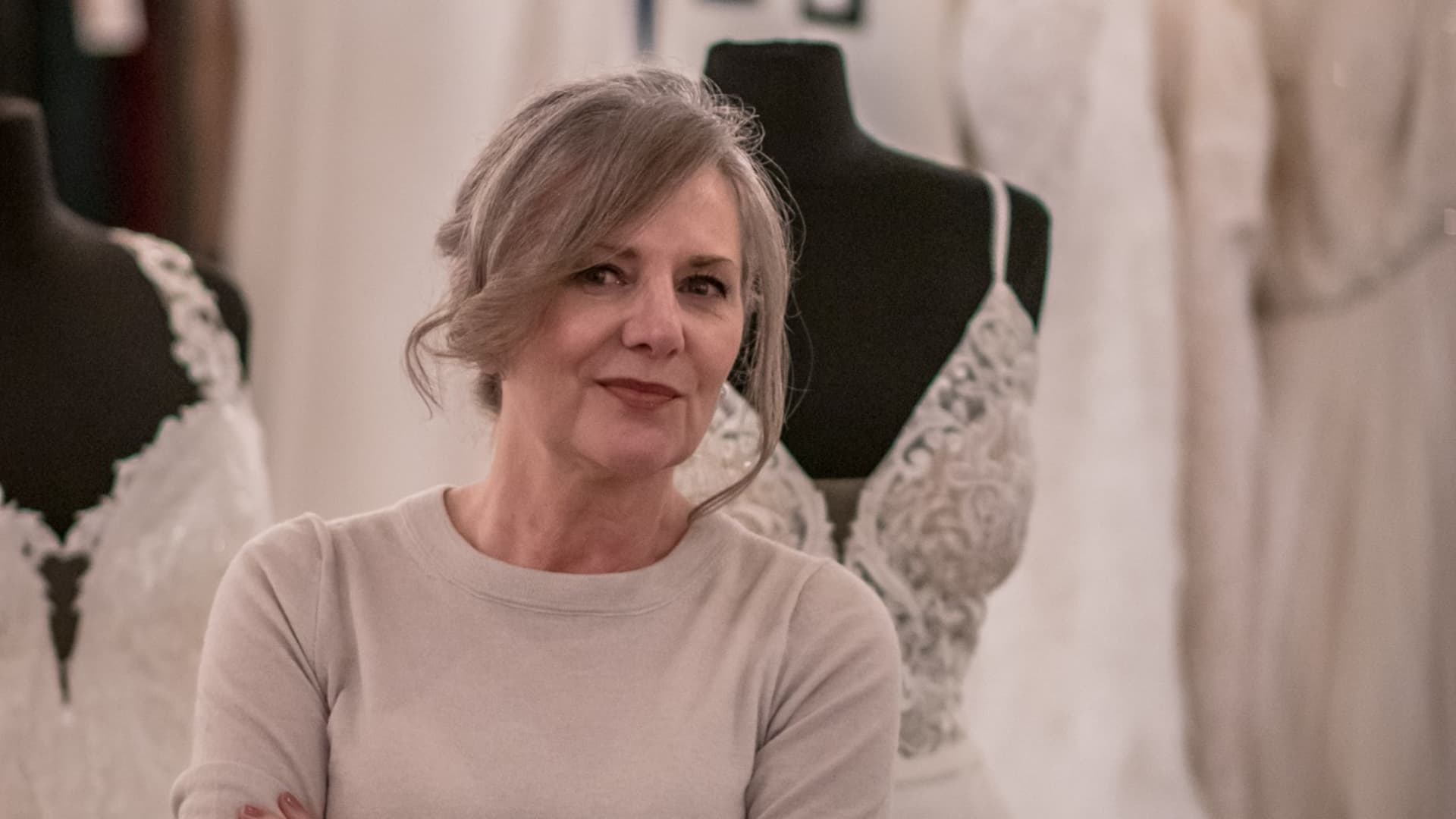Penny Bowers-Schebal opened her wedding gown shop Formality Bridal with a simple mission: to sell gowns for $999 or less to brides on a budget.
To keep prices low, Formality Bridal buys last-season gowns from U.S. retailers and Chinese private labels, and sells them at a fraction of their in-season cost. Bowers-Schebal’s two shops in Geneva, Ohio, and Erie, Pennsylvania, brought in over $500,000 in net sales combined, and she paid herself roughly $71,700 last year, she says.
The recent increase in tariffs on imports from China — a 145% total rate, as of Wednesday — will increase the cost of gowns, threatening her business model and the wedding industry at large, she says. About 90% of Formality Bridal’s gowns are made in China, and U.S. retailers will resell them to Bowers-Schebal at higher rates to account for their own import payments, she says.
The stock market rose on Friday, after the White House said President Trump is “optimistic” that China might negotiate with the U.S. At their current rate, tariffs could raise the costs of Formality Bridal’s most expensive gowns to $2,800 each, Bowers-Schebal estimates.
“I want to remain optimistic, but I see a retail meteor heading towards this country, and what I’m hearing from the U.S. government is akin to, ‘Well, just don’t look up and you won’t see it,'” says Bowers-Schebal, 57.
In anticipation, she cut her personal salary by 10% in March, she says. She’s advertising tariff-free dresses for as long as her current inventory lasts. If the tariffs remain in place through early May, she’ll add the upcharges as a line item on newer gowns, raising prices for brides-to-be, she says.
The longer the tariffs stay in place, the more Bowers-Schebal will need to keep trimming her budget, she says — cutting back on donating cash and gowns to local charities, and sourcing dresses from other countries.
“I have even looked into Russia as a possible place to source inventory,” says Bowers-Schebal. “The president [hasn’t] imposed tariffs on them. Who would have predicted that would be a possibility?”
Weddings — which cost an average of $33,000 in the U.S. last year, according to The Knot — could soon get more expensive in general, says Esther Lee, The Knot’s deputy editor. Alcohol, florals, rental furniture and wedding attire may become more costly even if they’re manufactured in the U.S., because many businesses still rely on imported fabric and embellishments, she says.
Services like alterations and food could increase in price, says Bowers-Schebal, since seamstresses and bakers often buy items like sewing machines and frosting nozzles from overseas.
In a roundabout way, tariffs could help Bowers-Schebal’s business, she says: Even with price increases, Formality Bridal’s gowns will still be less expensive than most in-season options, and brides will be more incentivized to save money on their weddings.
As for her personal livelihood, Bowers-Schebal isn’t panicking yet, she says. She opened Formality Bridal’s first location in June 2018, and growing her business during the Covid-19 pandemic taught her to safeguard her emergency savings.
She also earns roughly $24,000 per year through a rental property, which she deems a mostly passive side hustle, and currently feels financially stable, she says.
“I always want to have enough in the bank to weather whatever storm comes,” says Bowers-Schebal. “I have always taken a conservative approach, in case I need to pay the bills. The business needs the money more than I do right now.”
Want a new career that’s higher-paying, more flexible or fulfilling? Take CNBC’s new online course How to Change Careers and Be Happier at Work. Expert instructors will teach you strategies to network successfully, revamp your resume and confidently transition into your dream career. Start today and use coupon code EARLYBIRD for an introductory discount of 30% off $67 (+taxes and fees) through May 13, 2025.
Plus, sign up for CNBC Make It’s newsletter to get tips and tricks for success at work, with money and in life.





